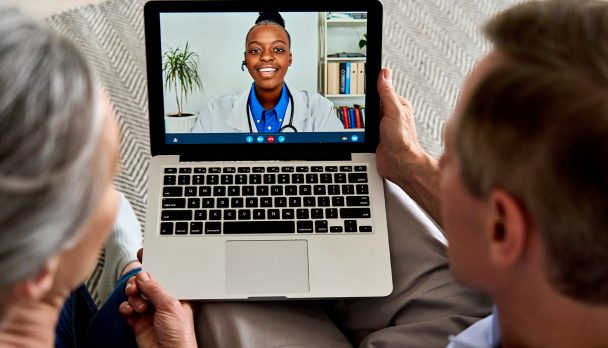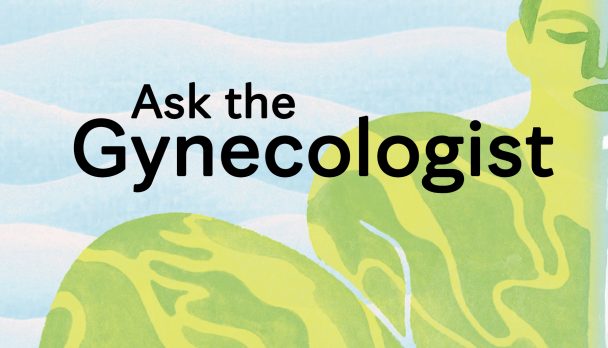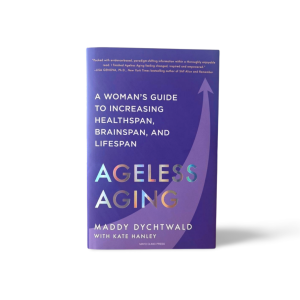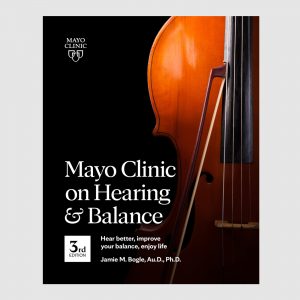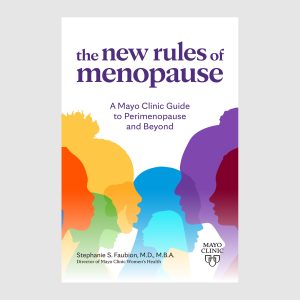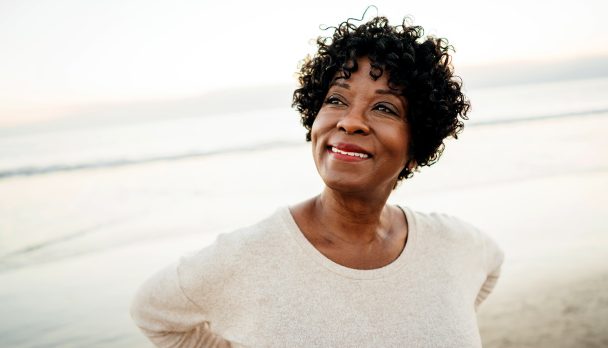Roughly half the world’s population will experience periods at some point in their life. Some people dread them. To others, they’re a rite of passage. And periods can range all over the place: light, heavy, long, short, frequent, irregular — everyone’s is unique. But how do you help your kid navigate getting theirs and understand when something’s wrong?
Read more about Signs your child is about to start their first period.
On this episode of Mayo Clinic Kids, we talk with Dr. Asma Chattha about menstrual health, as well as signs that something more serious may be going on.
Read the transcript:
Dr. Angela Mattke:
Hi! I’m Dr. Angela Mattke, a pediatrician with Mayo Clinic in Rochester, Minnesota, and I specialize in helping parents make sense of medical issues.
On each episode of “Mayo Clinic Kids,” we talk to different medical experts to get the latest pediatric research and recommendations. This episode: menstrual health. When your kid gets their first period, it can feel like a big change and a big deal.
It’s kinda expected that your kid will feel a little freaked out. But even experienced menstruators are going to have questions. There are so many variables, it can be hard to figure out what’s “normal.” If your kid starts their period a bit young with heavy bleeding, that might prompt you to check in with someone like Dr. Asma Chattha.
Dr. Asma Chattha:
It’s definitely a scary, confusing, very challenging time. One specific example that comes to mind is when the child is very young. I think that’s where a lot of parents will want to figure out what’s going on and how could my 10-year-old be experiencing this? When we have a case like a 10-year-old with very heavy menstrual bleeding from the get go, we have to think through it pretty systematically because one size doesn’t fit all. We know that, in terms of periods, we also don’t want to generalize everything and say, “Oh, it’s just well within the realm of normal.”
Dr. Angela Mattke:
Because sometimes what seems strange or concerning is normal. But other times it’s not.
Dr. Asma Chattha:
Up to 10 to 12 percent of the time there can be these minor bleeding tendencies. I think it’s important when, specifically the young 9 or 10-year-old, if the periods are regular, but very heavy, leaking through at night and passing lots of clots or chunky material with the bleeding. There’s also some vague history of every time I brush my teeth, I feel like my gums bleed. Then, there’s occasional nose bleeds and a family history of very heavy bleeding with periods and most female family members. We started off with what’s normal and then asked probing questions to figure out if something could be deviating from that path, investigating that further for sure.
Dr. Angela Mattke:
Let’s talk about periods! Some people dread them. Some people see them as a rite of passage. But for about half the world, periods are a part of life. Any given month, 25% of the global population goes through a menstrual cycle. It’s not just women we’re talking about – girls, non-binary people, transgender men – people all across the gender spectrum can get periods.
No two look alike. They can range all over the place: light, heavy, long, short, frequent, irregular — everyone’s is unique. To make it more confusing, they can change over time.
To help you and your kid navigate this big transition, we’re talking with Dr. Asma Chattha. She’s a pediatrician at the Mayo Clinic in Rochester, Minnesota, and specializes in adolescent reproductive health.
Dr. Angela Mattke:
It’s pretty common for kids to start asking questions about periods well before puberty. I actually remember the very first time when my son saw a tampon in the bathroom and asked about it and wanted to know what it was and he was really, really young, maybe like two or three years old. How early do you actually start talking about periods with your child and what do you say and how do you explain it?
Dr. Asma Chattha:
I always tell parents to think of the age at which you want to start talking to your children about puberty and then drop it down, then drop it down some more. That’s where you want to begin. It’s not just periods because, hopefully all of us are going to be talking to our children about changes in their bodies and puberty.
I think children as early as kindergarten, first grade age range are very much able to grasp some concepts of, “Hey, how you look today?” Eventually when you’re older, you’re going to look like mom or dad. There’s a process. Even if you’re not naming names at that early an age and you’re not calling it puberty stage one or puberty stage two, you’re just telling them that there’s going to be a series of changes that your body is going to go through.
Dr. Angela Mattke:
Then I would say try not to shut down those conversations when they naturally come up. Like you said, you give the age appropriate advice, and I like to think of it all as building blocks. Because sometimes like our parents’ generation or their parents’ generation, it was the talk. It shouldn’t be a one time thing. It should be this process where you’re building on these concepts.
Dr. Asma Chattha:
Absolutely. I think that’s a great point. It used to be this event, right? The talk. The funny thing is, at that event, half the people already knew and half are traumatized for life because they’re like, “We had no idea.” It has to be a process so it doesn’t catch anybody off guard, and it’s not like a snooze fest for the others.
I think it’s done in that 11 to 12 year range now in schools, and that’s part of the curriculum. That’s all well and good. But I always, always, talk about this, where this education needs to have started at home a very, very long time before any of the conversations in school occur.
Dr. Angela Mattke:
Absolutely. What about kids who don’t menstruate? Why is it important for them to learn about periods as well?
Dr. Asma Chattha:
It’s very important for them to learn about periods. I don’t know if you remember one of these stories that went viral all over social media a year ago about this boy and on his bus, there was a girl he noticed had leaked through her pants and he immediately went over to her and discreetly said, “Put this around your waist.” He was this great kid who didn’t call attention to it and was aware of what was happening. I think it’s important for many different reasons. A, to be a good, sensitive friend and have empathy for what half the world goes through for a large majority of their lifespans.
It’s something that they’re going to come across in some way, shape or form, even if they’re not bored with ovaries or a uterus. I think it’s very important, and like when we were talking about body basics boys need to know all of this as well. Especially as bodies are changing, they need to be respectful and sensitive to some of the changes that both genders are going to be experiencing.
It just leads to an overall environment of inclusion and just sensitivity for everyone and things like acne, and adult high body odor, and all of these things are going to happen well before you’re going to see menstruation entering the picture. Sensitivity training at home is so important.
Dr. Angela Mattke:
100%. When is “go time?” When do we start seeing signs of puberty and when should parents start expecting that first period?
Dr. Asma Chattha:
Puberty symptoms can begin in someone with ovaries at eight years of age, and it can start all the way up to 13 to 15 years of age. Somewhere in there, the average age of onset of that first period is between 12 and 13. It has been declining. Transcribed in recent times, but even if puberty is occurring earlier, fortunately, the actual first time of period starting has not changed much in the last few decades.
Dr. Angela Mattke:
Do we understand why that’s occurring or what’s driving it?
Dr. Asma Chattha:
We don’t entirely, but there are theories out there and definitely some causal relationships being identified. The two that really come to the surface are definitely that increase in body mass index. We do know that the rates of overweight and obese children and adolescents has been increasing over the last couple of decades in the United States and worldwide. This trend has been noted in association with earlier onset of puberty.
It makes sense because adiposity or fatty tissue is where estrogen also is made. If you have estrogen stores there, then potentially that’s signaling to the brain. It’s sniffing it and saying, “Oh, it must be time for puberty. Let’s let go of these breaks and start it.”
It’s been reassuring that overall the age at which the first menstrual period occurs hasn’t changed, but perhaps that’s just a matter of time and it is going to catch up and become a little bit earlier too, but so far that hasn’t changed.
The other theory really revolves around our environment. We are becoming aware of chemicals and just endocrine disrupting chemicals so EDCs just around in our environment and they could be coming from so many different sources, from the shampoos to the diet, to the milk products, to everything, and not to be an alarmist and say everything is unsafe because obviously we have to survive in this world. But I think being mindful of what we’re putting into our bodies is also important, both topically and then eating and consuming it in any way that could be affecting the onset of puberty as well.
Dr. Angela Mattke:
For those people who get their menstrual cycle earlier, like before eight or those who are getting their menstrual cycle until after age 14, is that a cause for concern? Is there anything a parent really should be doing about that?
Dr. Asma Chattha:
If there are symptoms of puberty occurring before eight years of age, that does warrant evaluation because, as we talked about, the brain being that master organ that controls the onset of puberty sometimes there can be lesions, a growth sitting in the brain. The majority of them are benign, but they can be sitting in the brain and signaling let’s start puberty sooner.
If someone’s experiencing any change of puberty it doesn’t really even have to be bleeding. It could be, you know, something else instead of breast development, or hair development, or armpits or privates. They should be seen sooner preferably in pediatric endocrinology to make sure that there isn’t a reason for that.
Similarly, if someone has not had a menstrual period they should also be evaluated to make sure that everything is healthy. Sometimes these are very simple things. Structural anomalies that can be addressed very easily that are just obstructing the outflow of menstrual products. 15 is that upper cutoff, but both should be evaluated for sure.
Dr. Angela Mattke:
I would add, just because of my background, eating disorders are a big driver also. It’s just not having enough energy. Their child is not eating enough, is not growing well. That’s disrupting those signals from the brain to go forward with puberty and it puts a pause on it because it’s in a state of starvation.
Dr. Asma Chattha:
Absolutely. Big, big reason you and I see a lot of it. Not starting on time.
Dr. Angela Mattke:
What about if a kid is really dreading or feeling really negative about getting their period? What’s the advice for helping them get through this change? I know I see this in the office a lot and I kind of feel empathy for them because I also felt that way, as a young kid. But I would love to hear your thoughts on how you respond to that.
Dr. Asma Chattha:
I think what I’ve learned through my patients, I think they’ve taught me over time, is to not jump to my “Oh, but it’s gonna be this and let’s do this. And let’s shop for this and get together with mom.” Before jumping into making it a very happy experience, I think we need to validate it.
I think half the time they feel better when, as I’m talking through those changes and they’re thinking, well, I don’t really want this to be happening to my body, why do I, and, teens oftentimes, or even preteens out here, talking about this is how you become a grownup. Eventually you’ll have your own family, and a lot of them are like, “I don’t want kids. Why do I have to do this?”
The most important thing is validating it. It’s surprising how often you just sit down and say “Tell me your top fears, what are you worried about?” We are often thinking they’re going to say this or that, but they’re going to say something very different. It could be the reaction from their peers. It could be maybe even access to mental hygiene products, which are not very easy in elementary or upper elementary. This is a fourth or a fifth grader. They’re scared of things like, “How am I going to get a pass? How am I going to go and change and do this?”
Then if it’s related to school, having a conversation with parents and even intervening if you can with your social worker or yourself on how can we make the school a better environment, if that’s where the concerns are coming from. Sometimes it’s more internal. I have to mention here that it can be an evolving just dysphoria, gender dysphoria too. This could be the time when some of those feelings are surfacing that have been suppressed and maybe they haven’t even acknowledged them yet to themselves.
Really, that’s where I’ve learned in retrospect, instead of jumping in with, “Hey, we’re going to make this great.” Wait, I’ve started to take a pause and say, tell me your fears. Then we go down the road of what they say, because if I sense a very strong aversion to puberty changes, I may involve psychology sooner to get to the bottom of it. If it’s more practical with school or certain things, then we address it through school and family and still talk about the positives. But I think it’s really important to validate it and see what their concerns are.
Dr. Angela Mattke:
Tips for parenting in general. Having that inquisitive empathy and responses to them instead of jumping in. What about for parents? What should they be doing to get ready? Preparing the house or having products available and things like that.
Dr. Asma Chattha:
It’s very important that once they start noticing some changes in puberty happening, always tell parents. You have some time. It’s like a lot of times the average onset of the first period from the time breast budding happens, which is usually the first sign of puberty changes in those who have ovaries. You have about two years, 18 months to two years for that first menstrual period. You can really base it on the family history too, if there’s an older sibling or mom herself and you have time to start collecting these products, and now with the newer menstrual hygiene products available.
I’m a huge fan of menstrual period underwear because sometimes with those who have sensory concerns, they don’t really like the idea of having to wear a pad. I’ve also often recommended, slowly over time, to just replace the underwear. A lot of them actually feel just like regular underwear. Parents have really found that to be helpful.
Then having a range of products available if they think that their child is going to want to experiment. Most children will want to try different methods. Having the teen tampons available, if needed I often tell them also to have some good water-based lubrication available for those first tampon insertions if you don’t want those to be traumatic. Those will slip in easier and then it doesn’t create a cycle of fear in the child.
It’s important to have those available and they’re very easily available everywhere in large quantities. Have them available with the teen versions of tampons, pads, menstrual period underwear. If you think your child is going to want to try a menstrual cup, maybe even that. But this is where, instead of making this huge purchase right as the first menstrual period happens, it’s time to start preparing when you start noticing those changes of puberty and creating a menstrual period cabinet.
Ideally one the child should have input in and access to to be able to feel these things, play around with them, ask questions, and ask you about your experiences. I think the conversation can start pretty early.
Dr. Angela Mattke:
Absolutely. I think parents are much more uncomfortable with having this conversation than teens are, actually. I feel like the kids feed off of the parents’ uncomfortable vibes.
Dr. Asma Chattha:
Definitely. When you’re trying to talk about these changes and you’re even trying to talk to some about safe sexual practices, if you’re uncomfortable, they’re going to sense it. It’s the same thing with the period because, depending on who’s talking about it and the comfort they have with this sort of natural change their body goes through, they’ll really feed off of that too, for sure.
Dr. Angela Mattke:
At what point should your kids start seeing a gynecologist regularly, or is menstrual health really something that can or should be managed by your primary care provider?
Dr. Asma Chattha:
It should be managed by your primary care provider. Once you do start a period, if they’re not experiencing significant dysfunction to their life, or their quality of life, or school or activities, this can definitely be managed in primary care. Gynecologists typically come in when it comes time for their first pap smear and even with that, if the pediatricians are comfortable with taking care of patients that are 21 years or older, or family medicine providers, or internal medicine providers. I think it’s up to anyone who’s comfortable with that care for teens and adolescents to provide it. When specialty care is needed, I’m sure most of us will loop in our specialists. But this is something that can very easily be managed in primary care.
Dr. Asma Chattha:
When it comes to talking about bodies and changes, definitely talk to kids of all genders about this stuff. It’s a good idea to start early – probably earlier than you think. It shouldn’t be one conversation, but an evolving discussion that builds over time as your kid matures.
If your kid has ovaries, expect that first period to happen sometime between 8 and 14. But if they start puberty earlier or later than that, bring it up with their primary care provider. As far as navigating the emotions that come with this change, the most important thing is to listen and validate. During this new phase, more than ever, kids need an understanding and empathetic ear. Now, let’s talk a little more about what getting a period can feel like.
Dr. Angela Mattke:
What is in the range of normal for a period, meaning like length, how heavy it is, and what other symptoms that might be associated with it that are normal?
Dr. Asma Chattha:
There’s just such a wide range of what’s normal. It can take up to three years for the majority of children to develop a regular pattern. What we mean by a regular pattern is something somewhat predictable. Between three to five weeks at most, between two menstrual periods starting. The start of one menstrual period to the start of the next one could be between three and five weeks.
Then, with respect to how long the menstrual period can last, anywhere from two to seven days is normal if you’re lucky, and particularly in those first couple of months or first couple of years after you start your menstrual bleeding, they’ll likely be very light. They could be irregular, they could happen more than once a month, but they’ll most likely be light.
Then when you finally start ovulating and creating that perfect cycle that’s governed by the brain, talking to the ovaries, then mostly in that five to six to seven day range is within normal limits for bleeding. If it’s very heavy, we usually quantify that as needing more than four to five of any type of menstrual hygiene products. Usually we look at pads and how saturated they are, but even tampons count.
There’s varying amounts of blood loss with each menstrual bleed, but most adolescents will develop a cycle that’s unique to them and predictable by about the third year following their first period.
Dr. Angela Mattke:
What about pain? Is it normal? Is it good? Is it bad? Where do you draw the line for new menstruators?
Dr. Asma Chattha:
I often say to them, some cramping is a sign your body’s doing what it’s supposed to and when you’re having painless cycles and really no cramping at all you’re likely not ovulating, you’re likely not releasing an egg from the ovary just yet and periods are probably going to be irregular.
When some of that cramping begins, it’s a good sign. It’s important to normalize that. That’s not to say that the child should be doubled over, thinking this is within the realm of normal.
If it starts to affect school, if it starts to affect activities, if you’ve already tried Tylenol, Ibuprofen, heating pads, all of those good conservative sort of methods. Plus sleep. Sleep is a big one. I often use that as a marker of how severe some dysfunction is with the period. If someone’s awake and unable to sleep.
It definitely needs more evaluation because it’s rare, but other things such as endometriosis can rear their heads very early in life too, particularly if there’s a strong family history. Some cramping is good, some heavy/light bleeding here and there can happen, but if it becomes a pattern, if it’s disrupting their quality of life and their day to day functioning, then that definitely needs to be evaluated.
Dr. Angela Mattke:
Just for a little extra context, endometriosis is a condition where the inner lining of the uterus actually grows outside the uterus and it can cause all sorts of complications. But mostly it can just be really painful. When it rises to the level of needing to see a doctor, what are some of the things that we as medical providers are starting to evaluate for?
Dr. Asma Chattha:
Mostly it depends on if the concern is periods being irregular. We want to make sure all of the hormone axes are functioning the way they should be and thyroid is a very common one. We want to make sure there’s no thyroid dysfunction.
There are other hormones that can be slightly off balance starting even with the first menstrual period. I often talk to parents about those with ovaries and those with testicles. Both have hormones. We all have estrogen and we all have testosterone and we have our perfect sort of balances of both.
Sometimes in those with ovaries the testosterone becomes a little bit higher than it should be. You have ovary syndrome. It’s commonly called that condition. With the rise in body mass index that we talked about with obesity, overweight rising, we are seeing a lot more polycystic ovary syndrome.
Those are definitely things that we evaluate for. We also ask questions about the degree of pain, how much it’s affecting their day to day life because endometriosis is also something that you need to start screening for. Unfortunately, the definitive diagnosis is surgical. The majority of the time we’re basing it on family history and clinical signs and symptoms.
But bleeding disorders, endometriosis, polycystic ovary syndrome, thyroid problems, those are some of the things that we start to look for pretty early if someone’s menstrual periods are disrupting daily life.
Dr. Angela Mattke:
Reports of pain or discomfort from people with ovaries, especially if they’re a person of color, historically they tend to get ignored or dismissed more. Any advice for parents or kids how to advocate for this and navigate the medical system when something doesn’t really feel right.
Dr. Asma Chattha:
I’m the one who often talks about being the squeaky wheel and I’m not afraid to say that to parents too because we just have so much research to document that, yes, female concerns for pain versus male concerns for pain. Even when we put everything else aside for race and ethnicity, rights are just not taken seriously.
I think that’s where, in order to advocate for your child, it’s important to say, “I understand where you’re coming from, but this is not normal. So I would like this to be escalated to the next level of diagnostics because I would want my child to be feeling better.” I think just continuing to advocate for yourself.
Sometimes if in a certain place and time, you’re not receiving the answers that you feel comfortable with and, to be fair, I say that to parents when I’m at a loss for something too. I don’t say, “I would encourage you to talk to my colleague or my colleague in another hospital.”
Even just to be able to, get that opinion, get that reassurance, get that whatever you need to feel like you’re taking care of your child, because pediatrics is very different from when we’re seeking care for ourselves.
You know, there’s that added level of anxiety and just so much concern for your child, who’s young and who’s experiencing these new changes. So I think being an advocate sometimes means really speaking up.
Dr. Angela Mattke:
Well said. What about PMS or premenstrual syndrome? What’s the typical spectrum of things and what sort of symptoms might be a flag for something more serious?
Dr. Asma Chattha:
Often what I’m asking about, do you have any mood changes with your period? It’s really funny because the teen facing me and usually the parent is sitting on the couch behind them and the teen’s like “not really,” and the parents in the back are like nodding their heads and their eyes are big.
Not to make light of the situation, because obviously it’s tough when it happens, but the insight might be more to those around you. Then, yourself, and again, like I said, validation is very important, and if they’re not volunteering information about PMS type symptoms, we will often tell them, “Hey, with your period, with the drop in hormones, with the cyclic variation, there can be actually two times in your cycle.
Two times a month where you might feel differently, that time when you’re releasing that egg and ovulating, there can be changes then, too. Some people feel different from their usual and then certainly that two to three days before your period, to the first couple of days of your period that time is where PMS symptoms are likely to be most severe and we always want to make sure we don’t lose track of what PMDD ends up being.
PMS is sort of that mild end of the spectrum, but it is an actual diagnosis. PMDD, which is premenstrual dysphoric disorder, which is when your PMS symptoms are significant enough where sleep and appetite and relationships and academics and all of that is affected.
There’s a very complex questionnaire that goes into, If you check all of these boxes, but just speaking with the adolescents and speaking with the team, you can certainly get that sense where it’s more than just garden variety PMS, where they’re saying, “I’m unable to function these three days, and then, I lose weight or I gain weight.”
There’s changes in appetite where you’re eating too much or too little. I sleep all the time or don’t sleep at all. Certainly when they’re talking about appetite and sleep changes, we start thinking about PMDD that this could be more severe. That’s where I think sometimes a child does have insight. Does the family, because obviously they’re suffering along with them.
But that’s when the child will say, “No, I definitely feel like there’s a big difference.” PMDD is obviously a psychology-based or psychiatry-based diagnosis. Then we make sure that we make that referral to our friends in the mental health realm very early on.
PMS to some extent, again, can be normalized like the cramping because it’s a sign that the hormones are doing what they’re supposed to be doing. But when they start disrupting life, it’s important to intervene and we have fantastic medications that even in low doses can really help with those symptoms.
Dr. Asma Chattha:
Periods can look pretty irregular for the first three years. While no one enjoys cramping and mood swings, the good news is, those are signs that the body is doing what it’s supposed to – releasing eggs and going through the hormone cycle.
When we need to be more careful is if the pain or mood shifts begin to interfere with day-to-day activities, relationships, appetite, or sleep. That might indicate a more serious issue, and shouldn’t be dismissed as just bad luck or genetics.
If you’re worried about what your kid is going through, I fully support you being squeakiest of wheels and seeking second opinions. Now, let’s talk about managing periods.
Dr. Angela Mattke:
Would you recommend that kids and adolescents track their period and if so, do you have any tips for tracking it?
Dr. Asma Chattha:
I think it is important to track periods because it’s very helpful information for the family, for the child, but then if there is an aberration of normal, then I love looking at those tracking apps because when you’re trying to figure out what normal is and what abnormal is, really seeing that visually depicted is very helpful.
If there are concerns about privacy with certain apps that parents have, they can certainly do their due diligence and figure out what kind of data is being transmitted. Most apps, I know a lot of us just agree to the terms very frequently, but they do have information on where and how this is being tracked or shared.
Certainly every family is comfortable with its own level of risk. I certainly see many, paper charts calendars and that’s fine too. It works. However you’re feeling comfortable tracking it. But I think it is important to track it particularly in those first few years.
Dr. Angela Mattke:
Can any kid of any age use any period product, or do they need to hold off until they can start using things like tampons or menstrual cups?
Dr. Asma Chattha:
That’s my favorite question. Yes. Any kid of any age. I often say once you’ve had a menstrual period, you are entitled to use anything out there to manage a menstrual period. It should be based on comfort and I try to have parents and children avoid the issue of just forcing tampon use because certain times muscle tension develops.
Those pelvic floor muscles are sensitive and then they’ll remember that cycle of sort of trauma with that tampon placement. That’s why we mentioned the lubricants in the beginning as well. If something is not working, leave it be for a few weeks and come back to it later, or try a different way, but yes, in terms of safety, they’re able to use any product.
Dr. Angela Mattke:
Awesome. There’s lots of ways to manage your period, but the goal is really the same, health and hygiene. What are some indicators or guideposts for parents that they can keep in mind to know if things are generally going well, or maybe if it’s time for them to step in and suggest some alternatives?
Dr. Asma Chattha:
I think, apart from the comfort of the child themselves, if there are leaking episodes, during school or overnight, typically that’s one of the questions that we often ask too. It’s a marker of either your product is not well positioned or, just not able to hold the amount of blood loss you have.
Those are times that parents need to start thinking about different methods so they can suggest or even take the team with them shopping for a different product. Just change the modality completely and see if that works better.
Dr. Angela Mattke:
Some people use hormonal birth control to help keep their period more manageable. Even if they’re not sexually active, and I think that’s a really important disclaimer because sometimes previous generations were taught that they couldn’t use hormonal birth control or other things like that until they were sexually active. When would you recommend that or not?
Dr. Asma Chattha:
I think it’s one where hormone management has become mainstream for so many other reasons too. I mean acne is a big one. Where our dermatologists are using these long term for that reason. We know they’re safe. We know they’re effective. We know that used in the doses that they’re used in now, as opposed to even a few decades ago, they do not pose any kind of risks to fertility or cancer at this age.
At the age that we’re seeing our preteens and teens, that is completely appropriate for them to stay on it only for the predictability of their menstrual period or for acne or for any other reason. They may not be ones who are suffering from heavy or painful periods, but they just like having that regular pattern of menstrual period, or maybe it’s helping with mood, or it’s helping with acne. Completely appropriate reasons to stay on it. It does not have to be just for birth control.
Dr. Angela Mattke:
As we have alluded to periods can generally be really taxing on mental health and it doesn’t help when society has this stereotype of menstruating people being, quote unquote, hormonal. Do you have any advice for parents, how they can support young people with mental health with their periods?
Dr. Asma Chattha:
You know, just being supportive, it’s tough even for parents not to relate. I smile as the parent of a teen, preteen. It’s hard not to relate how they’re behaving to their time in their cycle. It’s hard, but it’s important to validate it because if we always express it as, “Oh, you’re just being hormonal because so and so,” it could become a problem.
What angers teens the most is when someone is dismissive of them. I mean it’s something that, at that stage in life, they really need someone to validate their feelings. I think validation is key. Again, a good marker of dysfunction becoming more problematic is probably relationships in school and academics if they’re noticing that that’s happening.
PMDD is not all that rare and getting that early help from their primary care provider is important. Do we need to loop in a counselor or something like that? That stigma attached to, “Oh, you’re just hormonal. So you need this, or you’re acting crazy.” That needs to go. Because it’s valid. It’s just as real as polycystic ovary syndrome, or diabetes, or something else. This is hormone mediated. It’s real. We know the menstrual cycle exists. Why are we not accepting of the hormone and mood changes that are coming with it?
Dr. Angela Mattke:
Absolutely. I really like that statement. Anything else you wish young people were more aware of when it comes to maintaining their reproductive health?
Dr. Asma Chattha:
I think, for me, the newer menstrual hygiene products. I wish I could just stand on top of buildings and talk about those and say, “Go for those.” Because I think some changes are occurring earlier, and maybe menstruation will occur earlier too. It’s important for them to know that it’s not just pads and tampons now out there.
For many, the pads can be very irritating. Sometimes with sensory issues, we see that very commonly too. It’s very disruptive to their life to have to use this day in and day out for like seven days in a row. It’s also probably not very good for hygiene in general. We see more yeast and those kinds of infections as well.
I think menstrual period underwear, recognizing how that’s good for everyone, including the environment, those aspects are probably what I think and hope there’d be more awareness around. So much has changed. Things that a lot of people don’t know about, like the swimwear and the period underwear and the menstrual cups.
Dr. Angela Mattke:
I talked about it twice today, menstrual underwear and menstrual swimwear and peoples’ Jaws dropped. They’re like “Menstrual swimwear?”
Dr. Asma Chattha:
I told you about those little gift boxes we put together for teens to just experiment with, so we’ve got the plain old pads and tampons and cups, but we’ve also got very good period swimwear and period underwear.
Dr. Angela Mattke:
Oh, they’re in there.
Dr. Asma Chattha:
They’re in there.
Dr. Angela Mattke:
Oh my gosh! I’m so excited!
Dr. Asma Chattha:
They’ve been a great resource. That’s the kind of thing that parents could do too, just in anticipation of approaching menstruation for their child, how to get prepared, excited about it, shopping together, those kinds of things.
Dr. Angela Mattke:
Do you have advice for parents that really struggle to feel comfortable having these conversations with their children?
Dr. Asma Chattha:
I think a good place for them to have that conversation with their children then is in their primary care provider’s office. They’re hopefully at that time going to have a good relationship with their primary care provider if they’ve established that care. There are going to be parents, like you mentioned, who are not going to feel comfortable having this conversation ever. Maybe we like to challenge people and have them continue to evolve and grow, but there will be barriers sometimes.
For them I think it’s a really good idea not to make little of the situation that sometimes there’s cultural barriers. Sometimes parents who are maybe single dads, where they just felt comfortable having this conversation with me being present and then everybody being on the same page at that time. I think that’s a good way to begin, just leveraging those resources and primary care to your advantage.
Dr. Angela Mattke:
Absolutely. I’d say you can bring tools into the conversation. You and I worked together on this book called “Period” by Mayo Clinic Press. I think it has so much valuable information for those that menstruate, but it’s done via a graphic novel, which is so cool. It brings it to a funny level that kids can relate to and it doesn’t feel so serious and it doesn’t feel so uncomfortable.
I read it with my son, did I tell you about this? We’re reading the book on puberty and we’re going through all these things and he comes in and he’s like, “Mom, I’m a little fuzzy on periods.” Can we go over that again?” And I was like, “Oh yeah, I got a whole book for this buddy.” We did that book together and I think he was kind of like, “Oh my gosh,” a little scared, but I think he enjoyed it.
I think for parents that are uncomfortable too, using books as a guide can be really, really helpful to build on those conversations that they may have already started with their primary care provider to get more in depth and to have those questions answered that we don’t feel comfortable voicing out loud.
Dr. Asma Chattha:
That’s a fantastic idea. You’re right. Resources, both online books, those things, just start collecting them the same time you start collecting your products. That’s a very good idea to start disseminating that to the teen or preteen as well.
Dr. Angela Mattke:
Asma, thank you so much for coming on and sharing such important and powerful information for families and for children and for anyone who menstruates.
Dr. Asma Chattha:
It was a really fun conversation. Thank you so much for having me. Kids have so many options for managing their period now – certainly more than their parents or previous generations. They can track their cycle using apps. They can use hormone pills to safely regulate their cycles or control symptoms. Not to mention all the new products out there! If you haven’t figured it out already, Asma and I are big fans of period swimwear.
This is an exciting and difficult time for your kid. Again, it’s important to validate what they’re going through. If you’re finding conversations around puberty and menstruation difficult, your primary care provider is a great resource. Talking about these things is part of our job. We can do it all day! While I’m obviously biased, a book like Period from Mayo Clinic Press can be really helpful. It’s informative, fun, and full of the latest information. Even adults can learn something from it!
That’s it for menstrual health. But if your kid has something else going on, or you have a topic suggestion, send us an email at mcppodcasts@mayo.edu, or leave us a voicemail at 507-538-6272, and we’ll see if we can help you out.
Please remember, this podcast cannot provide individual medical advice and the discussion presented here cannot replace a one-on-one consultation with a medical professional. Besides, I’ve got menstrual goodie bags! Thanks for listening!
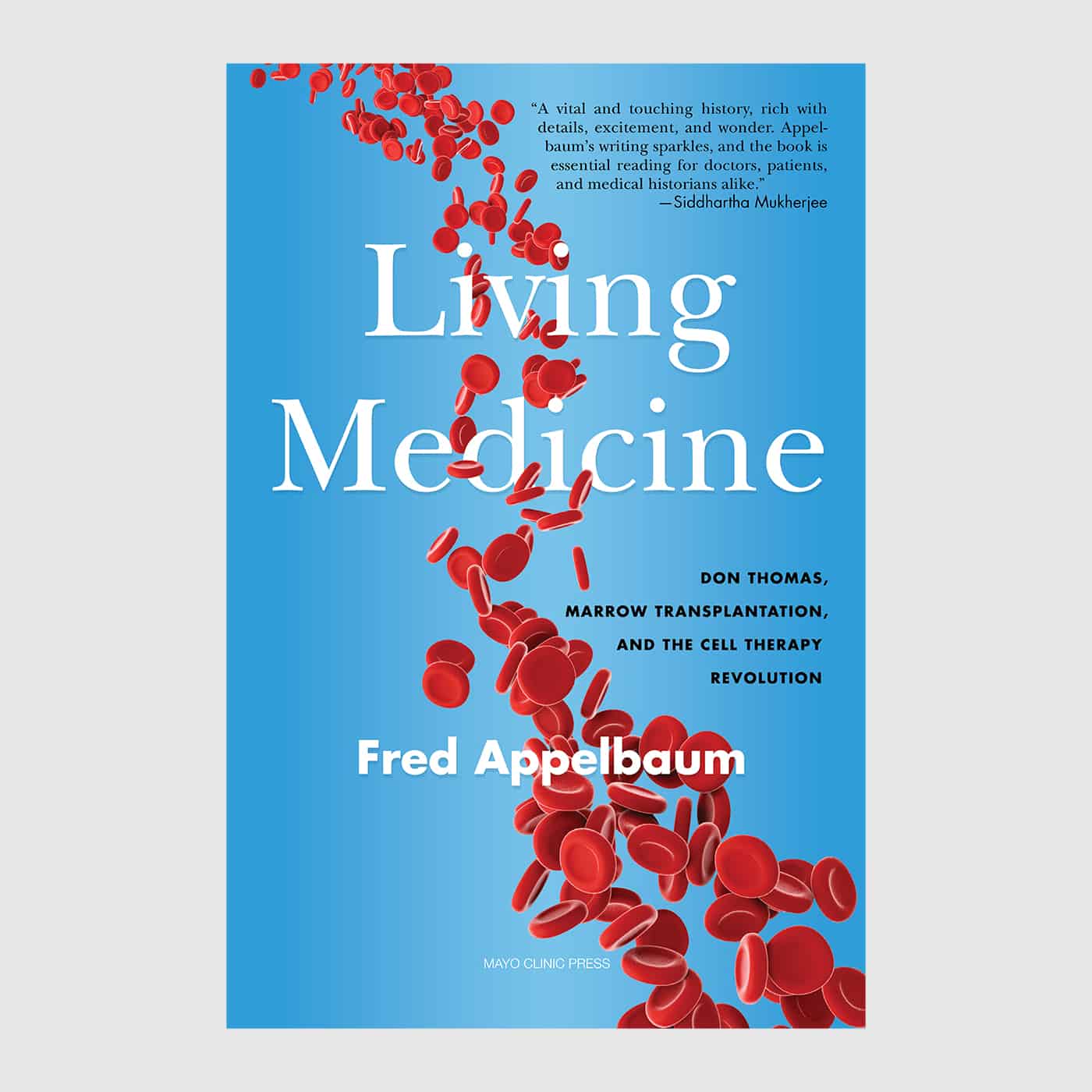
Relevant reading
Living Medicine
A sweeping biography of the visionary behind bone marrow transplantation and the story of the diseases cured by Don Thomas's discovery.
Want more children’s health and parenting information? Sign up for free to our email list.
Subscribe Open parent optin subscribe modal






